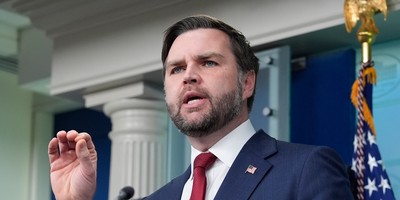Many of the signs at the recent Wisconsin protests against Governor Scott Walker’s efforts to scale back public union power reminded us that “if you can read this sign, thank a teacher.”
But they should read, “If you see a student holding this sign, shouting obscenities at Republican lawmakers, or drumming to drown out opposing voices, thank a teacher.”
Students have been primed to engage in such protest activities on behalf of those who hand out their grades. Teachers, thanks to unions, shirk their responsibilities to parents and citizens, and feel emboldened to use their classrooms as bully pulpits.
The one-sided presentations of history, and the pedagogical emphasis on critical thinking, collaborative learning, and community service, train students to see the kind of protests in Wisconsin as legitimate civic engagement.
Students, rather than learning the skills and obtaining the knowledge they need to become citizens of a free republic as the founders intended, get the idea that civics involves being part of a mob on behalf of “social justice.”
Indeed, teachers quite openly discuss their strategies for making students “change agents” for “social justice”--among themselves, as I learned by attending their professional conferences. At the 2009 conference of the National Council for the Social Studies, the largest professional group for social studies and history teachers, I saw a District of Columbia senator encourage teachers to take students as young as eight to protests on behalf of his pet project: Washington, D.C., statehood.
Recommended
A teacher, supported by the Public Broadcasting Corporation, bragged about how she went into classrooms to teach lessons on “social justice.” Another teacher gave a workshop on how to make middle school students into advocates for illegal aliens through emotionally manipulative exercises and adult-themed reading material. At a conflict resolution education conference I participated in workshops where teachers shared tips on emotionally manipulating students in order to make them into “world citizens.” Emboldened by the political power the union gives them, teachers congratulated themselves for bypassing official mandates. They see students as “my kids”--putty to mold into political advocates.
Union advocate teachers admit that opposition to Walker is motivated by a desire to maintain political power. Writing in the History News Network, University of Washington History Professor, Michael K. Honey, compares the current protest to Martin Luther King’s attempt to unionize Memphis sanitation workers. “Organized, dues-paying workers and particularly minorities and women,” he admits, are “a potent base for the Democratic Party.”
Columbia History professor Eric Foner, keynote speaker at the 2009 NCSS convention (a year after “socialist-anarchist” Boston University professor emeritus Howard Zinn’s presentation) in the London Review of Books, credits FDR with solidifying the liberal coalition, through the pro-union Wagner Act.
Foner fails to mention that politicians can only gain by giving away taxpayers’ money to public employee union voters. Foner heralds Wisconsin’s progressivism--the first state to grant public employee bargaining rights. He then snidely notes that “Wisconsin was also the home of Joseph McCarthy, and its conservative persona is now in the political ascendency.” The juxtaposition of the name of McCarthy with conservatism is intended to connect “red scare” mongering with conservatism—the same lessons of classroom discussions and textbooks. But while this partisan might have applauded the consequences of the 2008 elections, nary a word is said about the voters making their wills known in the election of 2010.
Princeton history professor Julian Zelizer too writes in CNN that we are seeing “a rather strong assault by conservative forces against the political and policy foundations of the liberal coalition” that “FDR helped to create.”
For these history professors, a liberal coalition is good, but a conservative one is bad. Such one-sided accounts are accompanied by a pedagogy that similarly rejects fairness. History lessons involve group discussions following emotional prompts intended to direct students to feel antipathy for the U.S. As they engage in privacy-infringing exercises in anti-bullying lessons, students are emotionally pressured to adopt a pro-gay agenda. “Critical thinking” questions are worded in such a leading way as to be a joke. Textbooks openly encourage subversion. Mandatory “community service” projects replace contemplative activities and direct students toward liberal causes.
Such pedagogy is intended to eliminate the standard of objectivity and independent thought. Students become incapable of engaging in the kind of reasoned debate that has been the foundation of our system of government.
The display of mob rule in Wisconsin should therefore give us more reason to take back the power from these unionized teachers.
This column first appeared in the Atlanta Journal-Constitution on March 14, 2011.

























Join the conversation as a VIP Member